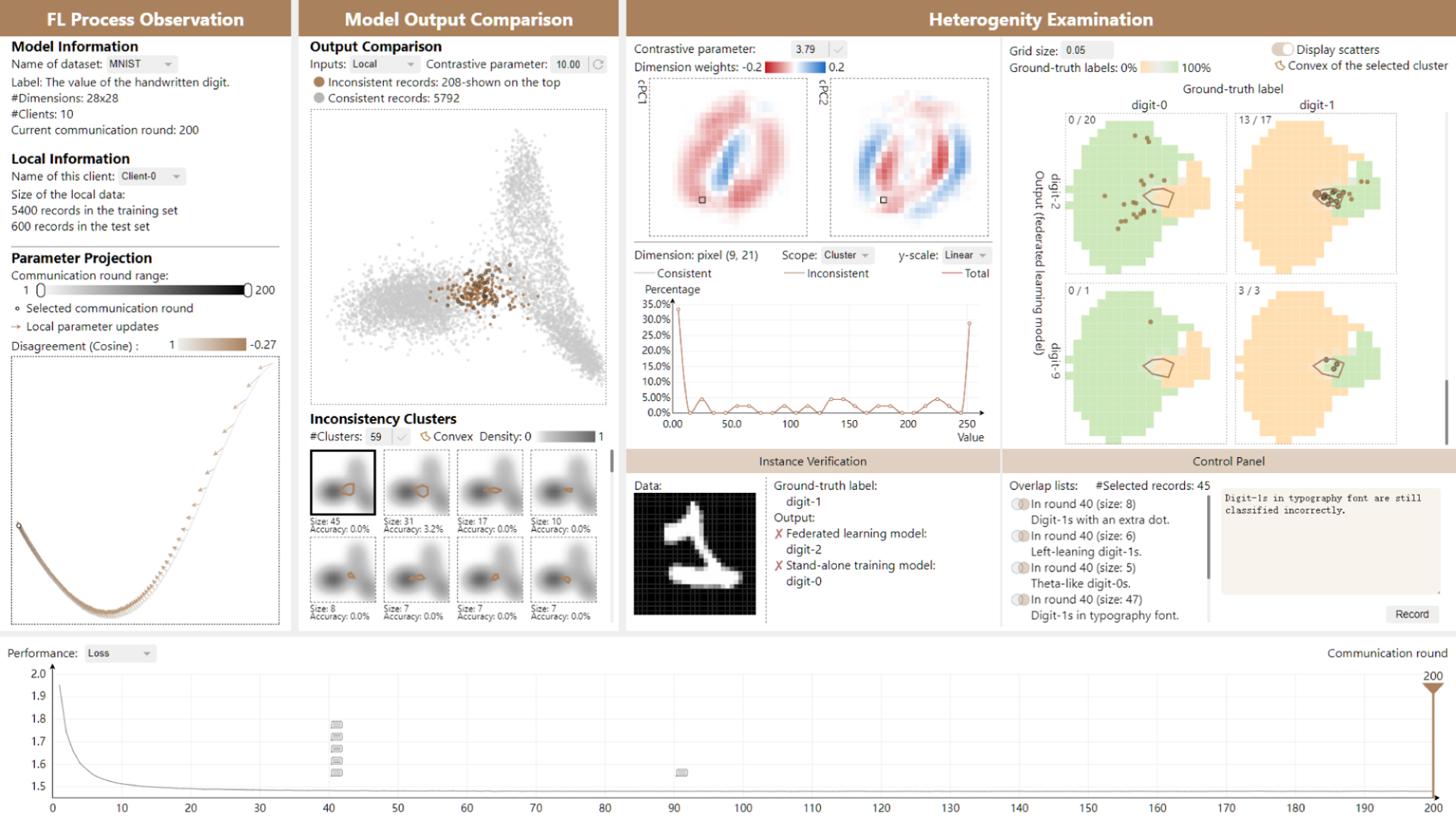HetVis: A Visual Analysis Approach for Identifying Data Heterogeneity in Horizontal Federated Learning
Xumeng Wang, Wei Chen, Jiazhi Xia, Zhen Wen, Rongchen Zhu, Tobias Schreck
View presentation:2022-10-19T16:21:00ZGMT-0600Change your timezone on the schedule page
2022-10-19T16:21:00Z

Prerecorded Talk
The live footage of the talk, including the Q&A, can be viewed on the session page, VA for ML.
Fast forward
Abstract
Horizontal federated learning (HFL) enables distributed clients to train a shared model and keep their data privacy. In training high-quality HFL models, the data heterogeneity among clients is one of the major concerns. However, due to the security issue and the complexity of deep learning models, it is challenging to investigate data heterogeneity across different clients. To address this issue, based on a requirement analysis we developed a visual analytics tool, HetVis, for participating clients to explore data heterogeneity. We identify data heterogeneity through comparing prediction behaviors of the global federated model and the stand-alone model trained with local data. Then, a context-aware clustering of the inconsistent records is done, to provide a summary of data heterogeneity. Combining with the proposed comparison techniques, we develop a novel set of visualizations to identify heterogeneity issues in HFL. We designed three case studies to introduce how HetVis can assist client analysts in understanding different types of heterogeneity issues. Expert reviews and a comparative study demonstrate the effectiveness of HetVis.